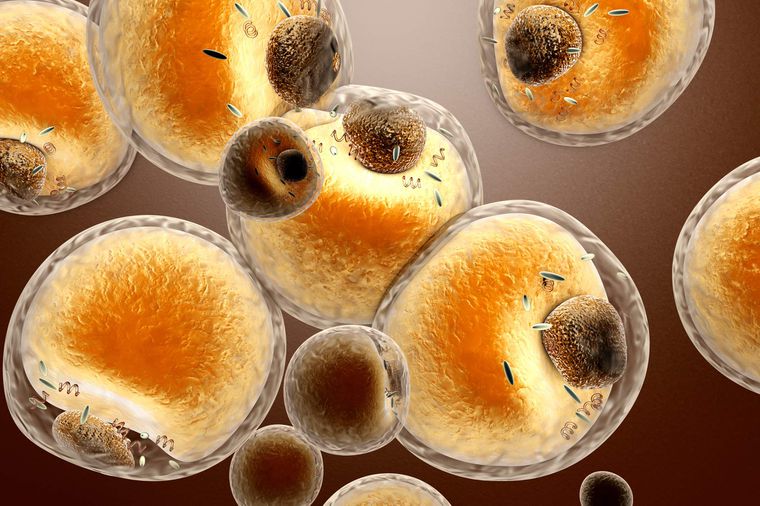Obesity is a serious global health problem and a risk factor for diseases such as type 2 diabetes, heart disease, and fatty liver disease.
A crucial element in the development of obesity is adipose tissue, which encompasses fat cells (commonly called adipocytes, cells specialized in storing fat) and macrophages (purifying cells of the immune system, which are commonly associated with the destruction of microbes). Along with researchers from Poland, Germany, Australia and Austria, a group of scientists from MedUni Vienna have discovered the signaling pathways responsible for the development of a valuable type of adipose tissue macrophage (ATM) in obesity, which prevents lipotoxicity.
Lipotoxicity
Lipotoxicity is the process by which lipid molecules build up in non-adipose tissue. This study has now been published in Nature Metabolism. In this study, the researchers, including researchers at the CeMM (Austrian Academy of Sciences Research Center for Molecular Medicine) and the University of Graz, studied in particular the PI3K signaling pathway. This is an important metabolic regulator since it regulates fat storage and plays an important role in the cellular reaction to the hormone insulin. In obesity, decreased action of insulin or insulin resistance leads to type 2 diabetes, which is associated with high blood glucose levels.
Gernot Schabbauer from the Research Institute for Vascular Biology and Thrombosis at the MedUni Vienna Center for Physiology and Pharmacology, lead author of the study has been studying the PI3K signaling pathway in immune cells for several years: “The key role of PI3K in metabolic processes is confirmed, but their role in adipose tissue macrophages was not clear so far”. Julia Brunner, lead co-author of the study, added: “Adipose tissue macrophages are like Dr. Jekyll and Mr. Hyde: in obesity, macrophages can be good or bad. We assume an active PI3K signaling pathway could tip the balance in favor of ‘good’.
The study
Using techniques such as multi-color flow cytometry, lipidomics, cell respiration tests, and various animal models, the researchers found that the sustained activity of the PI3K signaling pathway can tip the balance within macrophages for the better – this notably produces specialized adipose-tissue macrophages, which are characterized by an increased number of MARCO scavenger receptors (macrophage receptors with a collagen structure) on their surface.
The discoveries
“We discovered that these MARCO-expressing adipose tissue macrophages are ‘professional’ lipid catchers. These cells absorb fat in a MARCO-dependent fashion and break it down, thus preventing it from reaching the bloodstream,” Andrea Vogel explained, lead co-author of the study and immunology doctorate candidate at MedUni Vienna. Omar Sharif, lead co-author of the study added: “Metabolic syndrome and lipotoxicity are characteristic features of obesity. Our work indicates that a higher lipid intake and better energy metabolism of adipose tissue macrophages help maintain systemic metabolic health. This can have an effect on a number of metabolic diseases”.
Additional studies will now be performed to establish whether PI3K signaling may also have a lasting influence on the macrophage population of human adipose tissue. “Although moderate PI3K inhibition has already been discussed as a therapeutic strategy for the treatment of metabolic diseases, our data point to possible unexpected side effects. These may include altered blood lipid levels caused by the decrease of adipose tissue macrophage fat absorption,” Schabbauer added.
Link: https://www.sochob.cl/web1/identificacion-de-un-nuevo-factor-que-ofrece-una-potencial-nueva-estrategia-terapeutica-para-la-obesidad/
Date: November 18th, 2020
Source: https://medicalxpress.com
Reference: Brunner JS, Vogel A, Lercher A, et al. The PI3K pathway preserves metabolic health through MARCO-dependent lipid uptake by adipose tissue macrophages. Nat Metab. 2020 Nov 16.
Nutrigenomics Institute is not responsible for the comments and opinions included in this article






